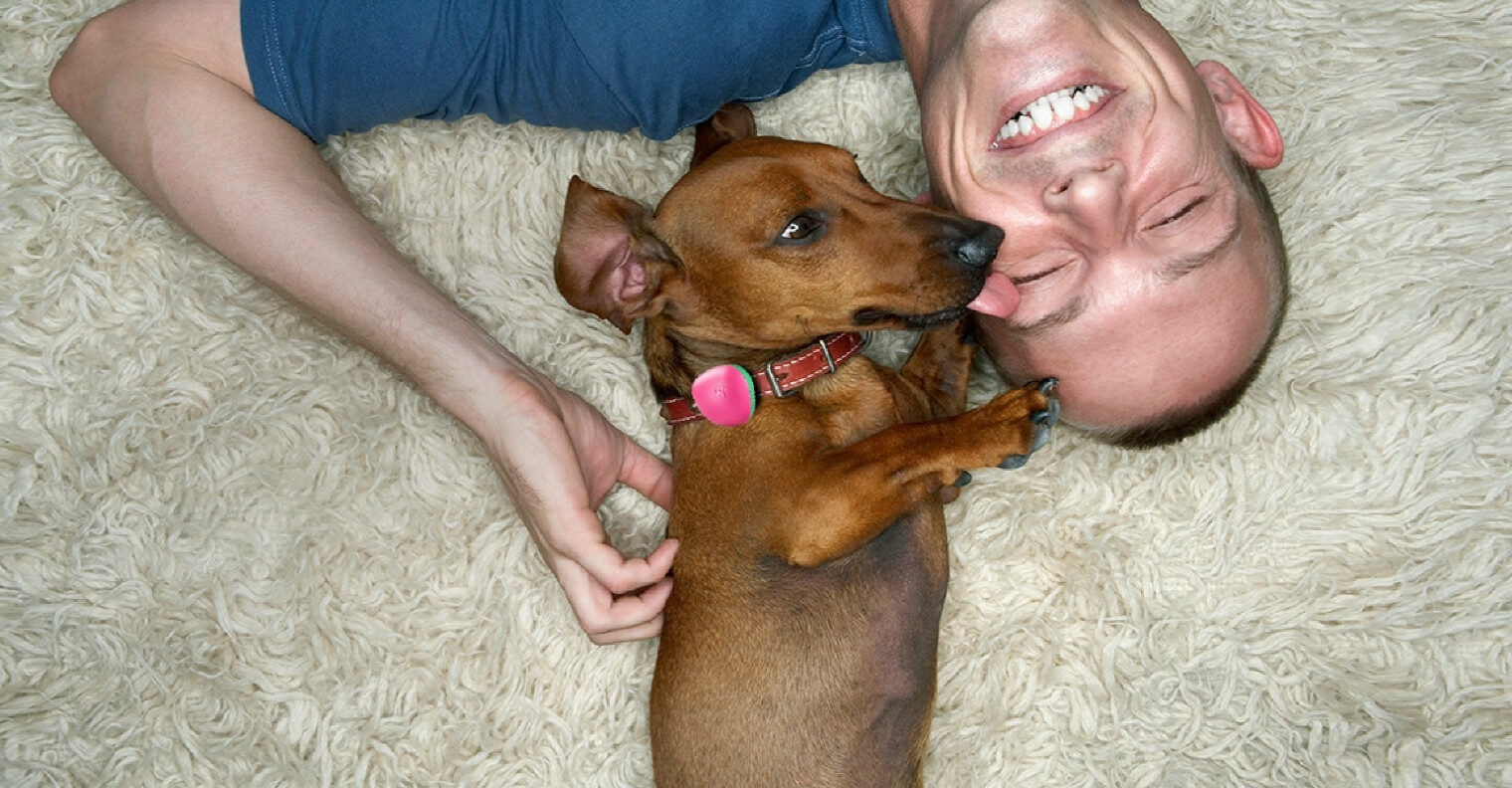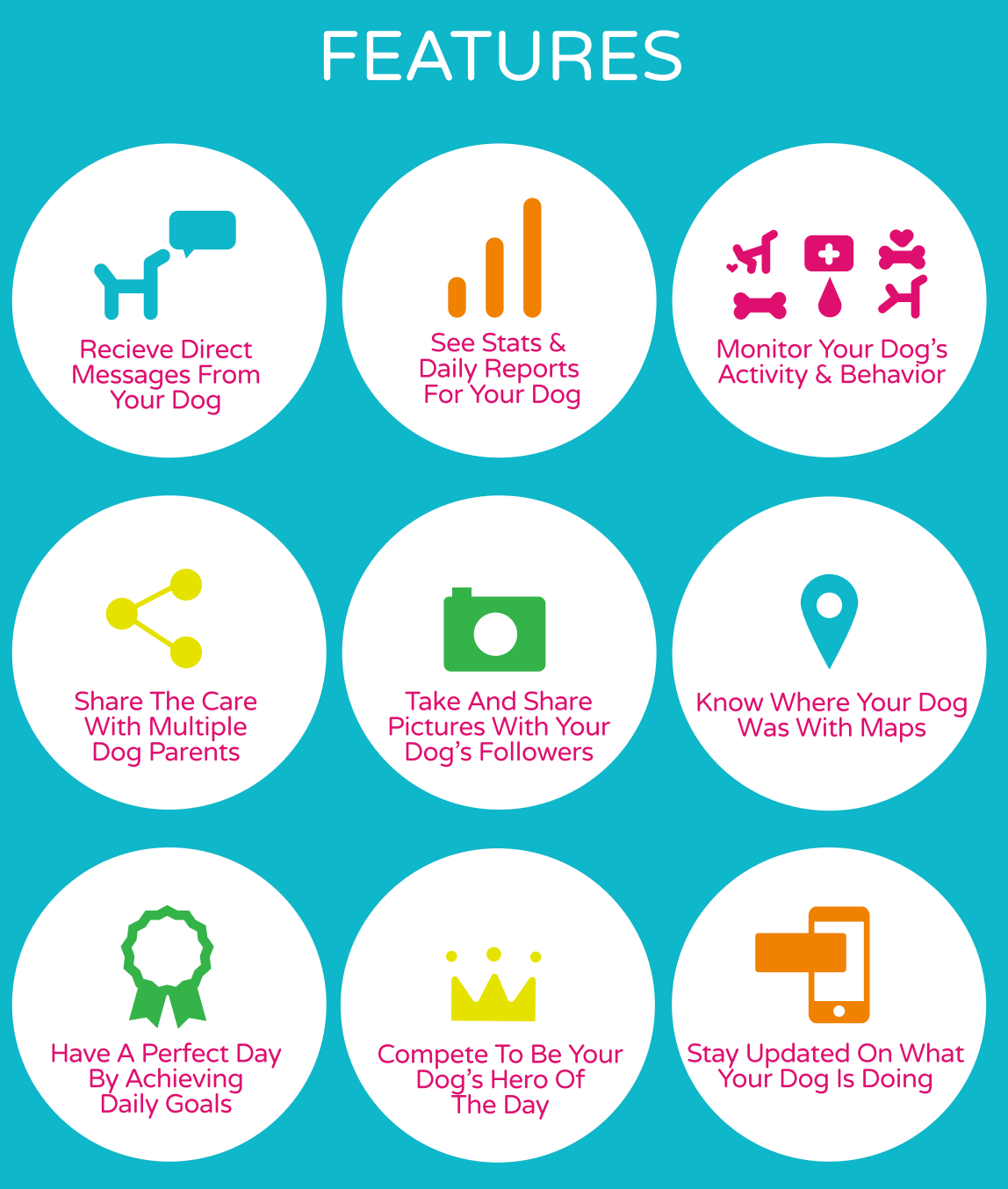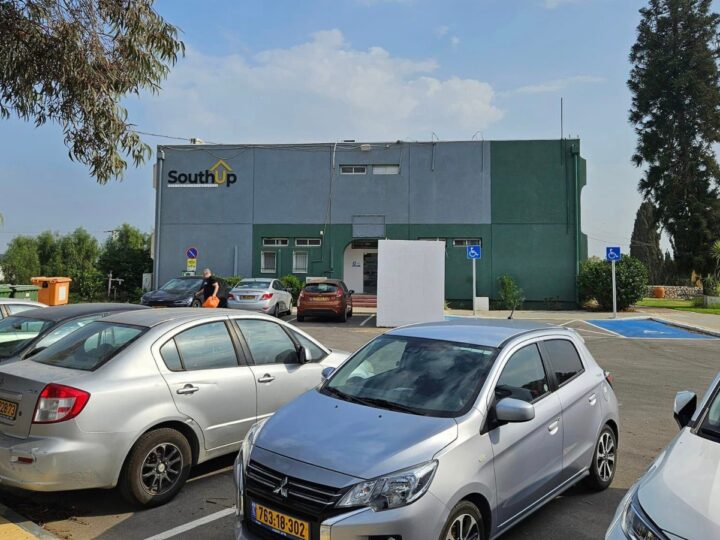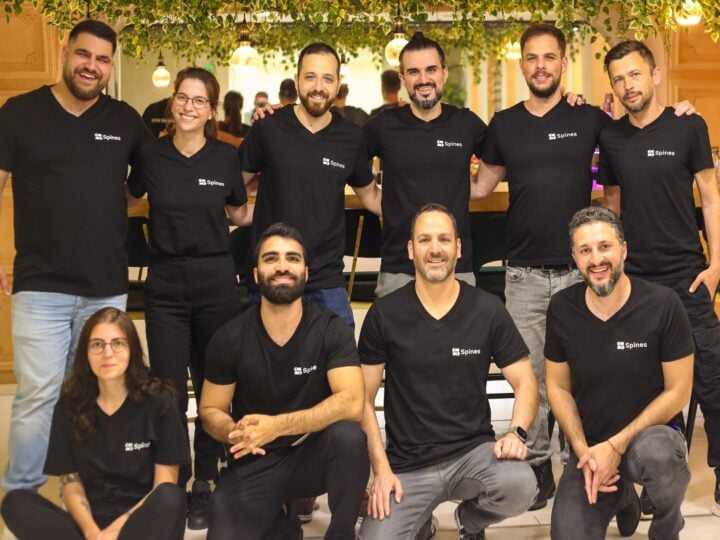If you consider yourself a dog parent rather than a dog owner, you’ll want one of these.
Amazon clearly saw this potential when it chose the Israeli-made Hachiko dog-collar sensor and mobile app to be among the first hot new products from startup companies in its new Amazon Launchpad.
Hachiko’s $39.99 Bluetooth-enabled waterproof clip-on, with a battery that lasts a year, measures the dog’s activities and transmits the data via a free iOS app to doggie’s parents and caregivers.
Not only does Hachiko show details of activities such as distance walked, time of walk, duration of walk and a map of the walk, it also generates voice messages about these activities – e.g., “Hey there! I just went with Bob the dog-walker for a romp in the park!”
There’s a timeline for adding and sharing photos and comments, and a way to keep track of intakes and outtakes (water, food, waste, treats, medicine). Based on what the dog is doing in real time, the app recommends relevant actions or knowledge segments. For example, if Fifi is home alone, Hachiko can send ideas to keep her entertained. DogTV, anyone?
Founded in early 2014 and soft-launched in May this year, Hachiko participated in two Tel Aviv accelerator programs: The Bridge by Coca-Cola and Nautilus by AOL. The company’s investors include AOL, BetaWorks and Metamorphic Ventures, and it already has sales in the United States, United Kingdom, Australia, Italy, Taiwan, Mexico and, of course, Israel.
“When we set out, we wanted to focus on making sure dogs are happy, and the best way to quantify that is by looking at their physical, mental and social wellbeing,” says Hachiko CEO and cofounder Hod Fleishman, a Jerusalem resident.
Fleishman tells ISRAEL21c that he and cofounders Zohar Fox and Effie Arditi each have experience in both hardware and software (Fleishman’s previous startup was GreenRoad, which measures driver behavior), and each has had a pet dog, “so it wasn’t difficult to get our heads into this world.”
Even before they wrote a single line of code, their first trial revealed just how much people crave communication with their canine kids.
Giving several Tel Aviv dog owners a dummy clip-on device, the Hachiko team explained that the product would allow them to message with their dogs.
“We opened a Twitter account for each dog and parent to communicate. The first message we sent said ‘Good morning’ and within a few minutes messages came firing back: ‘What are you doing now?’ ‘Did you sleep well?’ ‘Did the dog-walker come?’ Everybody wanted to know more and more about their dog’s daily life. So then we started working on the technology,” says Fleishman.
DINKs and their dogs
Israelis, being very fond of both dogs and high-tech, have attempted to put the two together in various ways before. For instance, the Oggii chip (still in development) translates canine movement patterns into health alerts, and Bio-Sense Technologies’ DBS security system interprets barks to let owners know remotely whether the dog senses danger or is only greeting the postman.
Hachiko’s founders took advantage of the newest technology and learned from the mistakes of other pioneers in the dog communication field by insisting that the product cost less than $50 and have a long-lasting battery, because research shows that people don’t like recharging their wearables. The devices are assembled in Israel in the Tefen Industrial Zone in the Galilee.
“We wanted to focus on making sure dogs are happy, and the best way to quantify that is by looking at their physical, mental and social wellbeing.”
The first demographic targeted was young DINKs (double income, no kids). An AOL-sponsored pilot in New York provided a wealth of information about refining the sensor and app to DINK dog-owners’ behavior and needs. Through Coca-Cola, which is headquartered in Atlanta, Hachiko then ran a larger trial involving mostly suburban Atlanta families with children.
“We found that the demographic doesn’t matter as much as the passion people have for their dogs,” says Fleishman. “Families may spend less money than DINKs on their dogs, but their interest is surprisingly similar.”
Initially the product was offered for sale at some local shops in New York City, where Hachiko maintains a presence.
“It was a good opportunity to meet face to face with dog parents and get feedback,” says Fleishman. “Now people are logging into the app between six and seven times a day. When we saw these numbers, we decided we’re ready. And then Amazon contacted us to say they were starting Amazon Launchpad and wanted us to be part of it. BetaWorks, one of our investors, recommended us to them.”
The name of the company and product derives from a poignant story Fleishman learned when living in Japan. Back in the 1920s, an Akita named Hachiko used to accompany his owner to Tokyo’s Shibuya train station every workday and come back to escort him home.
One day the owner did not come home; he had passed away while at work. Hachiko kept returning to the same platform at the same time, every day for nine years. There’s a statue of Hachiko installed outside the station, and Richard Gere starred in a 2009 movie about this extraordinarily loyal pet.
“When it came time to name our product, we wanted to find a name that would invoke that connection, love and devotion between people and their dogs. We thought of Hachiko and realized that his devotion best describes this connection,” according to Fleishman.
For more information, click here.



















